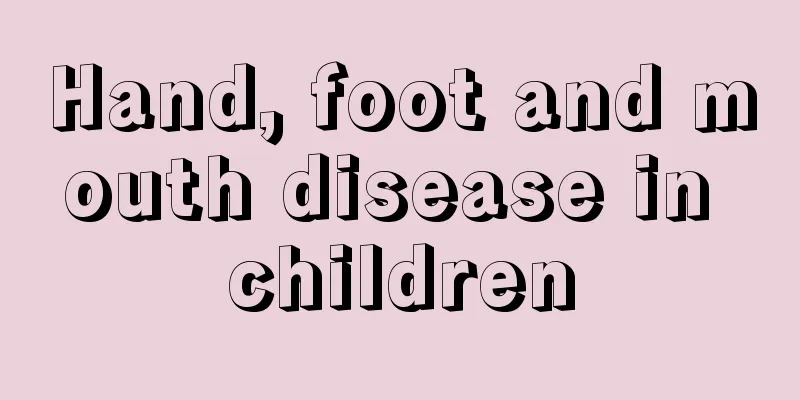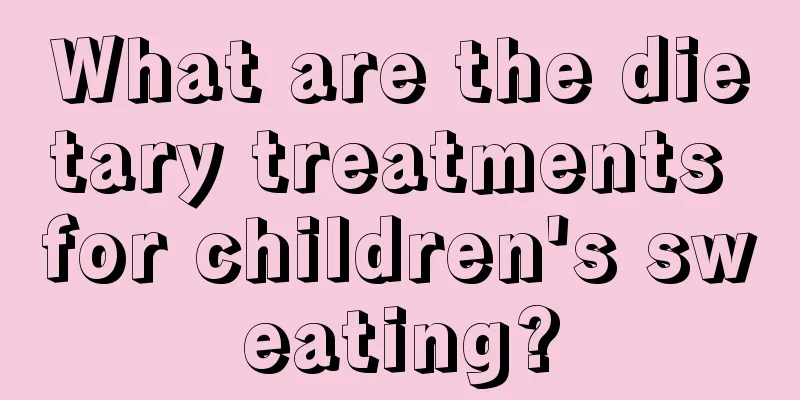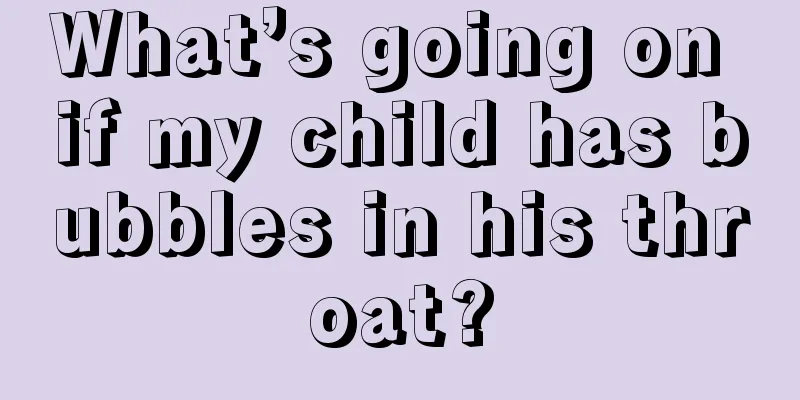Hand, foot and mouth disease in children

|
Hand, foot and mouth disease is a common disease in normal times. The incidence of this disease is relatively high in babies under 5 years old, especially during the transition period between autumn and summer, when the incidence is often the highest. At this time, parents must pay more attention to their babies. Once the baby shows symptoms of hand, foot and mouth disease, they must take the baby to the hospital for relevant examinations and treatment in time. Parents must pay attention to it and must not be careless. What are the symptoms of hand, foot and mouth disease in children 1. General symptoms (1) Acute onset, with an incubation period of 3-5 days, and prodromal symptoms such as low-grade fever, general malaise, and abdominal pain. Scattered painful, millet- to mung-bean-sized blisters appear on the oral mucosa, and maculopapules and herpes appear on the hands and feet. Initially, they are maculopapules, which later turn into herpes. They are round or oval, about 3-7 mm in size, like the size of a grain of rice, smaller than the chickenpox rash, harder in texture, with a red halo around it, and less fluid in the blisters. Dot-like or flaky erosions can be seen under the grayish-white membrane. After the rash subsides, no scars or pigmentation are left. If there is a secondary infection, the skin damage will often be aggravated. (2) In addition to the hands, feet and mouth, herpes can also be seen on the buttocks and near the anus, and occasionally on the trunk and limbs. They dry up and disappear after a few days. The rash is not itchy and painful. (3) Some children may develop generalized papules and blisters, accompanied by aseptic meningitis, encephalitis, myocarditis, etc. It may be accompanied by symptoms such as cough, runny nose, loss of appetite, nausea, vomiting, and headache. (4) Some cases only present with rash or herpetic pharyngitis. The whole course of the disease is about 5-10 days. Most cases can heal themselves with a good prognosis and no sequelae. 2. Symptoms of severe cases In a few cases (especially those under 3 years old), encephalitis, encephalomyelitis, meningitis, pulmonary edema, circulatory failure, etc. may occur. (1) Respiratory system manifestations include: shallow and difficult breathing, changes in respiratory rhythm, cyanosis of the lips, white, pink or bloody foamy fluid (sputum) in the mouth, and sputum sounds or moist rales in the lungs. (2) Neurological manifestations include poor spirits, drowsiness, headache, vomiting, easy fright, limb tremors, weakness or paralysis; physical examination may reveal meningeal irritation and weakened or absent tendon reflexes; critical cases may manifest as frequent convulsions, coma, cerebral edema, and brain herniation. (3) Circulatory system symptoms include: pale complexion, increased or decreased heart rate, shallow, rapid, weakened or even absent pulse, cold limbs, cyanosis of fingers and toes, and increased or decreased blood pressure. Nursing work for patients with hand, foot and mouth disease First, at the beginning of the disease, liquid food should be the main food, and small meals can be eaten frequently to maintain the nutrition needed by the body. Because children with severe oral ulcers may experience pain when eating, they can drink through a straw to reduce contact with the oral mucosa. Second, during the fever-reducing stage, the diet can be mainly pureed. Some vegetables or fruits, more nutritious foods can be made into pureed foods to provide children with sufficient calories and vitamins. Third, during the recovery period, the diet should still be mainly small meals, and you must pay attention to nutritional balance and sufficient nutrition and vitamins. |
<<: Baby's buttocks are red and swollen after diarrhea
>>: Tips on Hand, Foot and Mouth Disease
Recommend
Is it normal for my baby to have mucus in his stool?
When babies are young, they cannot express their ...
What kind of fruit is good for children who don't like to eat?
Children sometimes have gastrointestinal discomfo...
What are the symptoms of lead poisoning in children?
Children's health has always been a problem f...
What to do if your child always loses temper
If a child always loses his temper, in addition t...
What medicine is good for children with lung heat and cough?
Many children often have colds and coughs. This i...
What are the causes of bedwetting in children?
Bedwetting is relatively common among children, e...
Children can also suffer from vitiligo. Is there a difference in the ratio between boys and girls?
Many people think that vitiligo only occurs in ad...
I have used a lot of ointments but my baby's bottom is still red
Many women who have just become mothers will find...
Potential advantages of introverted children
Many parents worry that their children are introv...
Can young children eat taro? It is important to know how to eat correctly
Taro is a very good food and many people like to ...
What to do if children have vitiligo
Children are more vulnerable to diseases in life,...
What complementary food is good for a 3-year-old baby?
When the baby reaches 3 years old, he has general...
How should children eat to strengthen their spleen and stomach?
Nowadays, many children are less and less interes...
The impact of adults' quarrels on babies
It is normal for couples to quarrel, and they can...
What to do if your child has otitis media
Many mothers always complain that their children ...









